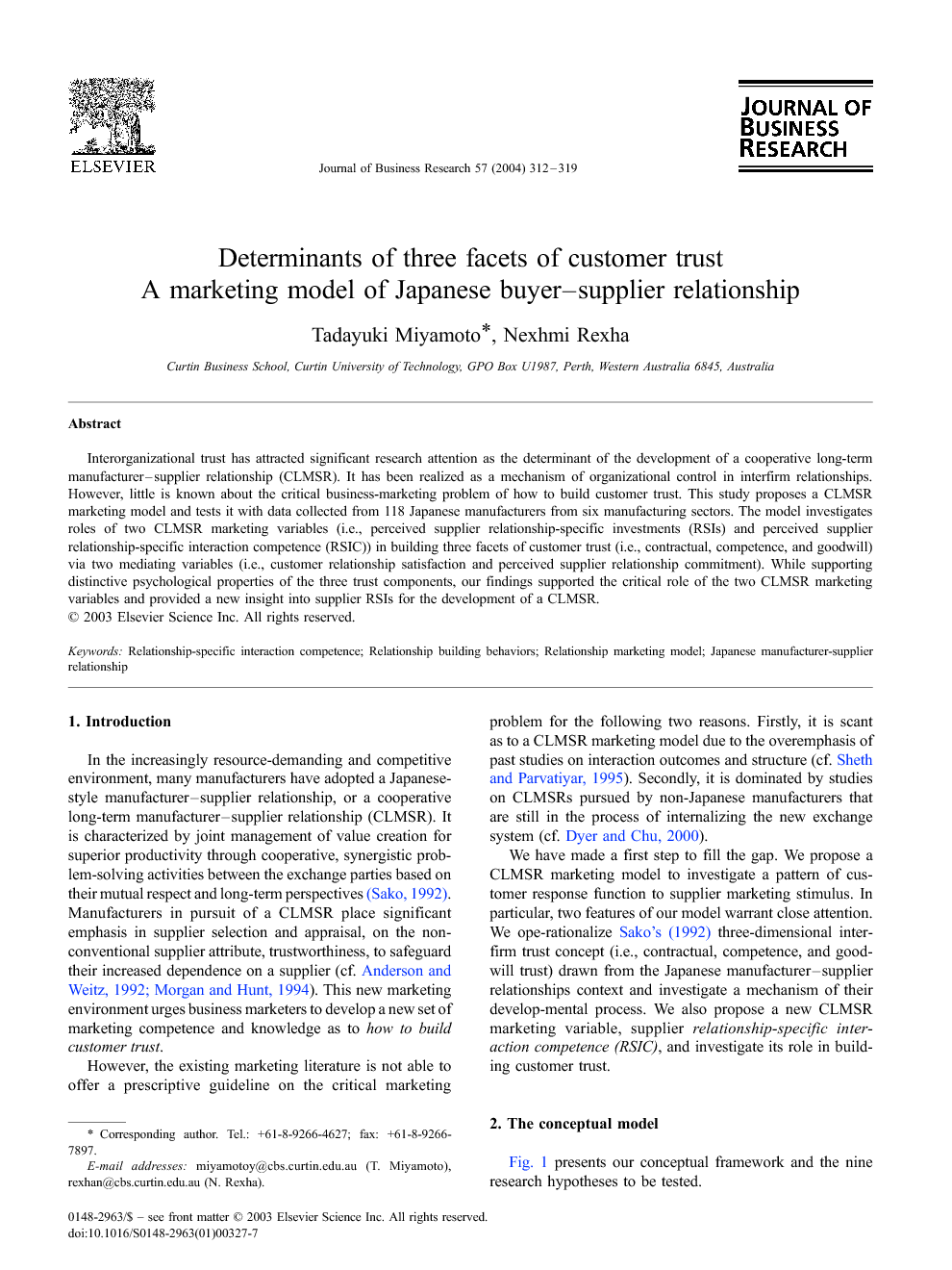ترجمه فارسی عنوان مقاله
عوامل مؤثر بر سه جنبه از اعتماد مشتری: یک مدل بازاریابی رابطه خریدار تامین کننده ژاپن
عنوان انگلیسی
Determinants of three facets of customer trust: A marketing model of Japanese buyer–supplier relationship
| کد مقاله | سال انتشار | تعداد صفحات مقاله انگلیسی |
|---|---|---|
| 21153 | 2004 | 8 صفحه PDF |
منبع

Publisher : Elsevier - Science Direct (الزویر - ساینس دایرکت)
Journal : Journal of Business Research, Volume 57, Issue 3, March 2004, Pages 312–319
ترجمه کلمات کلیدی
رابطه خاص صلاحیت تعامل -
رفتارهای ایجاد ارتباط -
مدل بازاریابی رابطه -
رابطه تولید کننده - تامین کننده ژاپن -
کلمات کلیدی انگلیسی
Relationship-specific interaction competence,
Relationship building behaviors,
Relationship marketing model,
Japanese manufacturer-supplier relationship,

